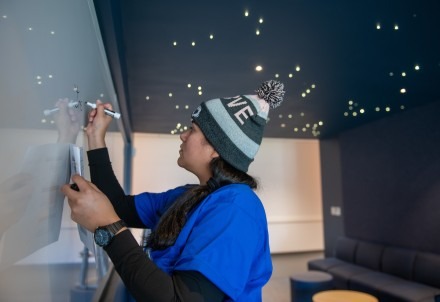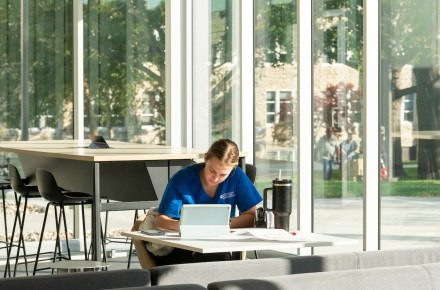The medical humanities program focuses on health and wellness in the greater context of the human experience. This develops students’ understanding of health issues as human issues – not necessarily scientific ones.


Program Overview
With knowledge of humanistic methodologies and disciplines, medical humanities students will be able to bring a creative and holistic approach to the study of medicine and health and will demonstrate awareness of how the health sciences are called to answer fundamental human problems.
This interdisciplinary minor draws from all the disciplines of the humanities. The medical humanities minor will benefit students planning careers in medicine and related health care fields by grounding them in many of the core competencies defined by the American Association of Medical Colleges.
Medical humanities is open to students who have a declared major in nursing, sciences, physical and occupational therapy, health sciences or pre-health programs.
The medical humanities minor is part of the Center for Interdisciplinary Studies.
Learning Outcomes
- Written and oral communication skills
- Critical and creative thinking to form the flexibility necessary in the health professions
- An understanding of ethical responsibility
- Cultural competency as defined by the AAMC by developing an understanding of socio-cultural factors that affect interactions and behaviors
- Engagement with diverse perspectives as a resource for learning
Program Outcomes
The Medical Humanities Minor is beneficial to students preparing for medical school as well as those preparing for other careers in health care, including patient advocacy, physical and occupational therapy, nursing, health care administration and music and art therapy.
Health Administration
Nursing
Public Health
Occupational Therapist
Physical Therapist
Art Therapist
Community Health Professional
Social Worker
Course Map
Degree and class descriptions and requirements can be found by clicking on the course catalog listing below:
Degree Info
The minor's one-credit hour capstone is experiential. Students may choose either TA 3210 which uses simulation to train students in the role of patient or MH 4000 for which students will complete service hours at a health care-related organization.
Find Your Program
Choose topic to quickly find specific program details
